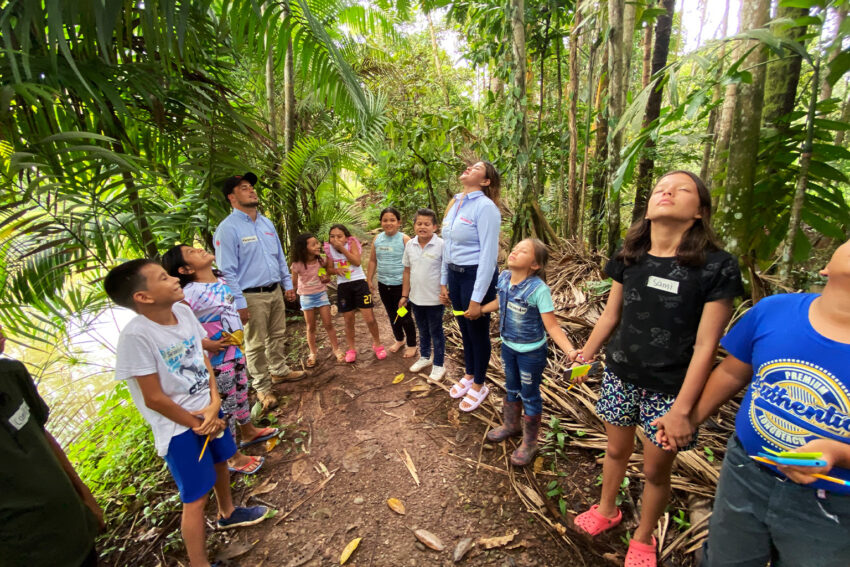Here are five inspiring stories we found around the world this week.
Living classroom program inspires “capital of abundance” in Colombia
More than 7,000 students from all over Colombia have taken classes at La Cosmopolitana Foundation, where the aula viva (living classroom) method teaches cooperative and abundant-minded ways of thinking and applying it to agriculture. Several program graduates have transformed the rural community of Lejanías into the country’s “capital of abundance” via sustainable farming. The living classroom has also inspired Indigenous peoples to return to their ancient cultivation methods, like rotating forest gardens.
Australian blockchain startup incentivizes renewable energy optimization
PowerPlay, a Web3 company, plans to sell power throughout Australia using a tokenized reward system – motivating renters and apartment dwellers to shift their energy usage to optimize wind and solar power. Using a smart meter with five minute interval data and an app that shows customers how much power they’re using in real time as well as what’s happening in energy markets, the company plans to help communities make informed energy decisions about when they use electricity.
Nature-based management is making Australian rivers more resilient
New research shows progress in Australia towards United Nations goals, making rivers more able to recover from flood, drought, and other impacts. One of the lead researchers said that the community’s continuous streamside revegetation and years-long work in nature-based rehabilitation along the 120-kilometer Wollombi Brook helped reduce the impact of last year’s flood – proving to be one of Australia’s best examples of sustainable environmental restoration in the management of rivers.
California farmers utilize atmospheric rivers to restore aquifers
After years of drought and dozens of recent atmospheric rivers, Central California farmers have revamped an old practice: intentionally flooding fields for deep irrigation and restoration of underground aquifers. The practice, called managed agricultural groundwater recharge, is seen as an increasingly important task during years with a water surplus in the state, and a more convenient way to store water for longer periods. In Tulare County, the irrigation district has started crediting farmers for the amount of water they return to the aquifer, which has been a game-changer in spurring widespread recharge.
Seed-breeding DNA shuffling project could help farmers adapt to climate change
The Utopian Seed Project is growing dozens of types of okra in one North Carolina field, creating genetic collisions that build new, resilient varieties. The idea of these ultracrosses is to shuffle the genetic deck of existing varieties, creating combinations of traits that haven’t been seen before. Working from those new foundations, farmers and gardeners might develop plants that are better adapted, both to their geographic regions and to the changing climate.


This Okra DNA shuffle story is just such a delight. Call me a guy who works in tech, but it reminded me of this delightful quote. “When we pick an objective ahead of time and try to get there, if it’s a simple objective we can do it, but if it’s a really hard objective we’ll probably fail. Usually the best way to solve a really hard challenge is not to try to get anywhere in particular but to try to just learn and go everywhere, go in any direction, follow any stepping stones, kind of have serendipity inside your algorithm, then eventually you will have the skills and knowledge to solve this task that maybe you originally did want to solve but you shouldn’t try to solve it. There are many examples of this throughout the history of technology. (Eg microwaves, computers)” -Jeff Clune of OpenAI and UberAI as heard on https://overcast.fm/+yIRSSOxME
Related? Perhaps not directly, but I feel like both are cool in a similar way.